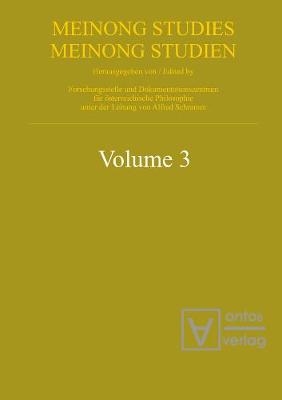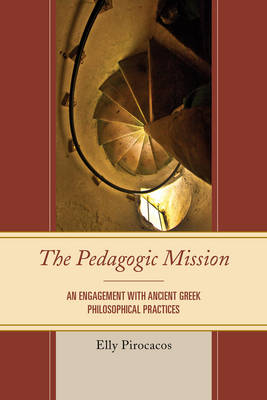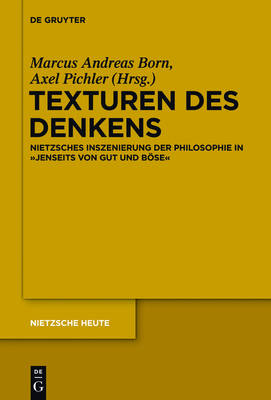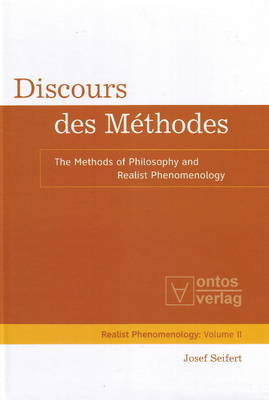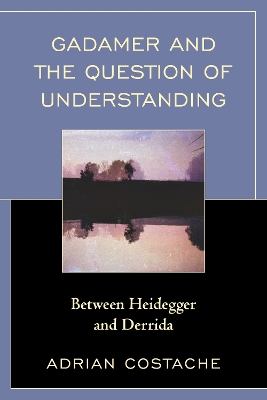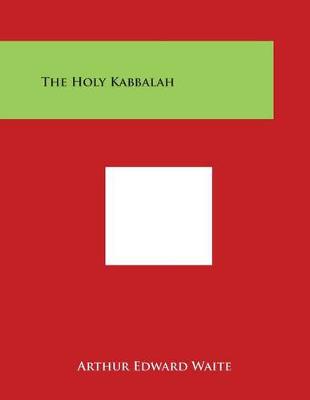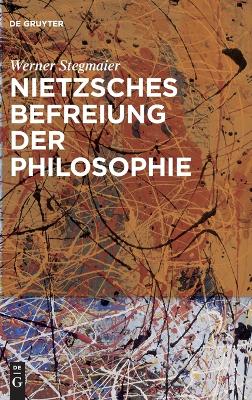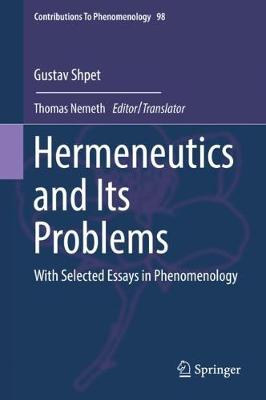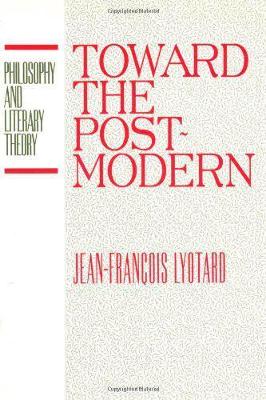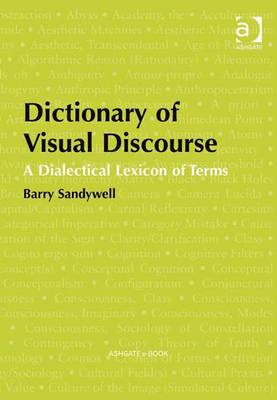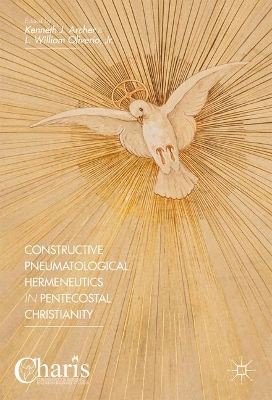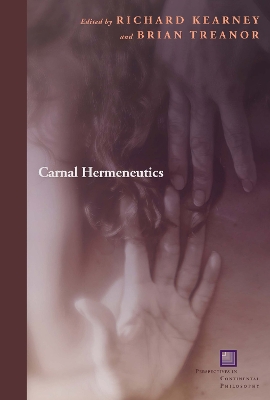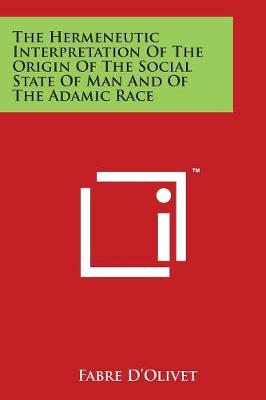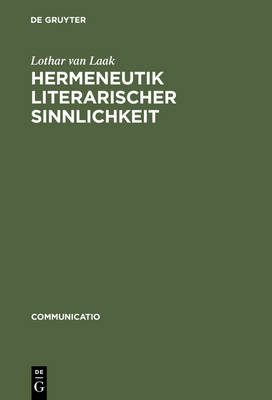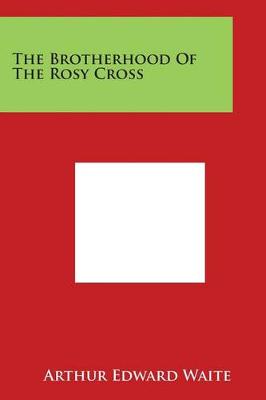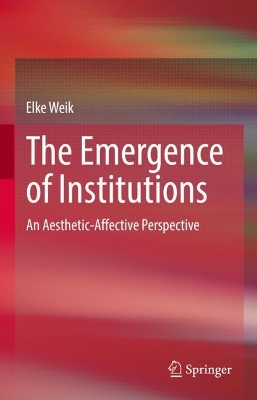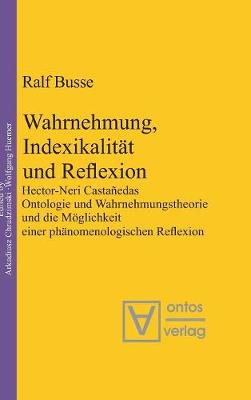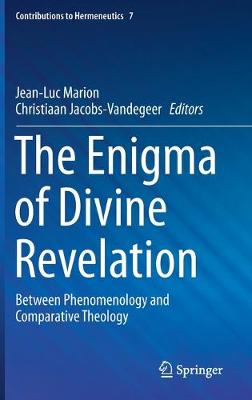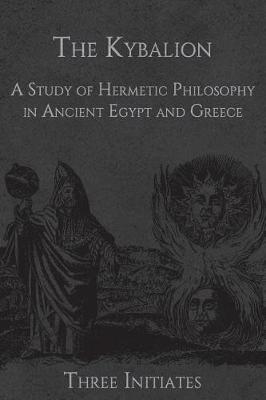The series presents historical and systematic studies on the philosophy of Alexius Meinong and his school, as well as on works influenced by aspects of Meinong's philosophy. Furthermore, the series is open to contributions in the analytic-phenomenological tradition, mirroring the most recent developments in these disciplines.
God and Being (Contemporary Studies in Philosophy & the Human Sciences)
by Jeff Owen Prudhomme
The author interprets the relation to Heidegger's ontology to theology in terms of a correlation. He develops his inquiry from several different perspectives: a brief overview of Heidegger's thought; an overview of the traditional connections of God and being, between ontology and theology, and of the necessity of the connection; an overview of the theological reception of Heidegger's work; and finally a discussion of the current situation in theology.
Discours des Methodes (Realistische phanomenologie/Realist Phenomenology, #2) (Realistische Phanomenologie / Realist Phenomenology)
by Josef Seifert
The term "method" of realist phenomenology and philosophy can refer to three kinds of things which are being explored extensively in this work: (1) Kinds of philosophical knowledge used to return to things themselves: intellectual "vision" of necessary intelligible essences, insights into necessary states of affairs, knowledge of less than necessary essences, knowledge of existence as such, of the ego cogitans and of a concretely existing world, other persons, and the absolute being, deductive f...
Hans-Georg Gadamer is depicted as a paradoxical figure in the literature. When Gadamer's work is approached by itself, outside the history of hermeneutics, he is generally presented as the disciple of Martin Heidegger, whose main theoretical contribution lies in having transposed his ontological hermeneutics into the sphere of the human sciences. Usually the master-student relation ends with a break between the two brought about by the student's desire to become herself a master. In Gadamer and...
Nietzsches Befreiung Der Philosophie (Nietzsche Heute / Nietzsche Today)
by Werner Stegmaier
Hermeneutics and Its Problems (Contributions to Phenomenology, #98)
by Gustav Shpet
This book details a history of the methodology of textual interpretation from Ancient Greece to the 20th century. It presents a complete English translation of Hermeneutics and Its Problems, written by Russian philosopher Gustav Gustavovich Shpet, along with insightful commentary. Written in 1918, Shpet's text remained unpublished in its original Russian until the collapse of the Soviet Union. This engaging translation will be of value to anyone interested in early phenomenology, Russian intelle...
Toward the Postmodern (Philosophy and Literary Theory)
by Jean-Francois Lyotard
Brings together previously unpublished essays by one of the most important philosophers of the last three decades of the 20th century. This authorized compilation of 13 essays reflect the main stages of Lyotard's thought-the libidinal, the pagan, and the intractable-leading toward his account of the postmodern in contemporary thought and culture.
This substantial and ambitious dictionary explores the languages and cultures of visual studies. It provides the basis for understanding the foundations and motivations of current theoretical and academic discourse, as well as the different forms of visual culture that have come to organize everyday life. The book is firmly placed in the context of the 'visual turn' in contemporary thought. It has been designed as an interdisciplinary or transdisciplinary introduction to the vocabularies and gr...
This book presents the work of leading hermeneutical theorists alongside emerging thinkers, examining the current state of hermeneutics within the Pentecostal tradition. The volume's contributors present constructive ideas about the future of hermeneutics at the intersection of theology of the Spirit, Pentecostal Christianity, and other disciplines. This collection offers cutting-edge scholarship that engages with and pulls from a broad range of fields and points toward the future of Pneumatolog...
Carnal Hermeneutics (Perspectives in Continental Philosophy)
Building on a hermeneutic tradition in which accounts of carnal embodiment are overlooked, misunderstood, or underdeveloped, this work initiates a new field of study and concern. Carnal Hermeneutics provides a philosophical approach to the body as interpretation. Transcending the traditional dualism of rational understanding and embodied sensibility, the volume argues that our most carnal sensations are already interpretations. Because interpretation truly goes “all the way down,” carnal hermene...
The Hermeneutic Interpretation Of The Origin Of The Social State Of Man And Of The Adamic Race
by Fabre D'Olivet
Hermeneutik Literarischer Sinnlichkeit (Communicatio, #31)
by Lothar Van Laak
This book presents an experiential, aesthetic-affective approach to the study of institutions. Drawing on institutional sociology, hermeneutics, phenomenology and process philosophy, it conceptualises institutions as collective experiences with their own self-promoting and self-propelling powers. Instead of seeing institutional emergence, change and decline as the result of actors’ interests and manipulations, this book re-establishes the importance of factors beyond human design and interventio...
Wahrnehmung, Indexikalitat und Reflexion (Phenomenology & Mind, #4)
by Ralf Busse
The Enigma of Divine Revelation (Contributions to Hermeneutics, #7)
This volume explores the possibilities and pressures of the language of revelation on human understanding. How can we critically account for divine self-disclosure in the linguistically mediated world of human concerns? Does the structure of interpretation limit the language of revelation? Does revelation open up new horizons of critical interpretation? The volume brings together theologians who approach the interactions of revelation and hermeneutics with different perspectives, including vario...
